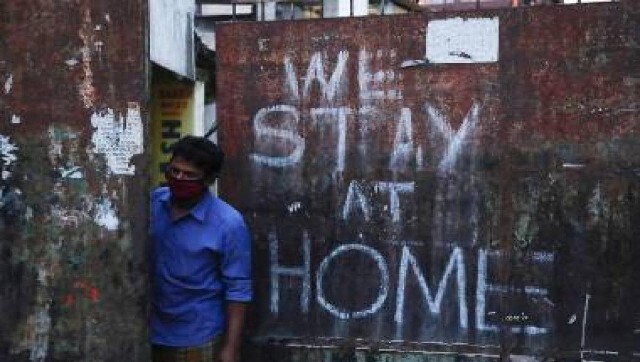
Tripura extends curfew in Agartala, 11 ULBs till 25 June. Representational Image.AP
The Union government on Friday told states to impose immediate containment measures, while the Maharashtra government tightened restrictions on movement

Tripura extends curfew in Agartala, 11 ULBs till 25 June. Representational Image.AP
Amid a looming third wave and fears of deadlier, more infectious virus mutations, the Delta Plus variant has crossed 50 cases in India, spreading to at least six more states since Wednesday, when it was declared a Variant of Concern by the Government of India.
On Friday, Union Health secretary Rajesh Bhushan wrote to Tamil Nadu, Rajasthan, Karnataka, Punjab, Andhra Pradesh, Jammu and Kashmir, Gujarat, and Haryana governments. He instructed them to take up immediate containment measures including preventing crowds, conducting widespread testing as well as increasing vaccine coverage on a priority basis in districts where Delta Plus cases have been detected.
Bhushan also urged state governments to ensure that adequate samples of people who test positive for are promptly sent to the designated laboratories of Indian SARS-CoV-2 Genomic Consortia (INSACOG) so that clinical epidemiological correlations can be established.
The Centre had, on Wednesday, also instructed Maharashtra, Kerala, and Madhya Pradesh to ramp up containment measures in affected districts.
Two days after declaring the Delta Plus variant as a Variant of Concern, the government stated Friday that there are still very limited cases of this mutation and it cannot be inferred that it is showing an upward trend.
On Thursday, Madhya Pradesh medical education minister Vishwas Sarang had said, "The government is monitoring the situation. Contact tracing has been done for those patients who were found positive for the Delta Plus variant and the reports of their contacts are negative."
Meanwhile, Hindustan Times reported on Saturday that an unvaccinated 62-year-old man from Odisha had recovered after testing positive with the new variant.
Apart from this, there is limited scientific evidence available to infer whether or not the Delta Plus variant is more potent or deadlier than other known variants of the . However, experts say the scenario "could change within weeks".
India had sequenced 30,000 samples until June, but experts believe more needs to be done. Dr A Fathahudeen, who has treated thousands of Covid patients, told BBC that current vaccines appear to work on known variants - but there is no guarantee that they will work on new variants. There have also been instances of people becoming ill despite having been vaccinated - especially after getting the first dose.
In conclusion, the Delta Plus variant, not to be confused with the Delta variant which largely drove the second wave, is not considered any more dangerous than the current strain dominant in India. However, the jury is still out on this due to a lack of conclusive evidence. But notwithstanding the potency of the said variant, experts believe that rapid and effective vaccination is the only way around for India. They say that more such variants could appear in future if the virus is allowed to run through the still susceptible population and one (or more) of them is bound to find a way around our current vaccine and treatment strategies.
However, specific information about the efficacy of vaccines against the Delta Plus variant is unavailable currently, he had said on Thursday, adding that the ICMR will conduct research and present a report in seven to 10 days.
"We are conducting the study to find if vaccines work against Delta plus variant. Such data is available nowhere in the country. The report will be available in 7 to 10 days. India was also the first country to culture Delta variant. Now we are working on Delta Plus, as we have enough information on Alpha, Beta," Bhargava said in a press briefing.
"We already know that the Beta variant evades vaccines much better than the Alpha or the Delta variants, as evidenced by the fact that the South African government had returned a consignment of AstraZeneca vaccines," he said.
Viruses mutate all the time and not all changes are worrisome. But this classification, according to AP, implies that there is some evidence the variant has genetic tweaks that allow it to spread more easily, make people sicker or vaccinations less effective.
The Delta Plus variant has been formed due to a mutation in the Delta or B.1.617.2 variant, which was first identified in India and has since spread to many parts of the world. The delta variant is more infectious and vaccines are slightly less effective against it.
According to AP, Delta Plus has an additional genetic tweak that could allow it to evade the human immune system. PTI reported that the Delta Plus is resistant to the monoclonal antibody cocktail treatment for recently authorised in India.
The new Delta Plus variant has been formed due to a mutation in the Delta or B.1.617.2 variant, first identified in India and one of the drivers of the deadly second wave.
In general, the Union Health Ministry said that VOCs have been found in 174 districts in 35 states and union territories, with the highest number of such cases seen in Maharashtra, Delhi, Punjab, Telangana, West Bengal and Gujarat. The proportion of cases with VOCs rose from 10.31 percent in May, 2021 to 51 percent on 20 June, 2021.
With inputs from PTI